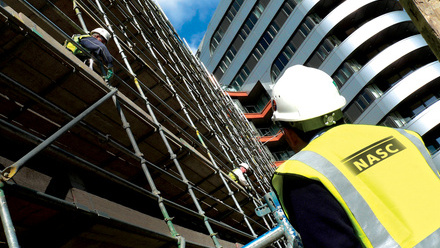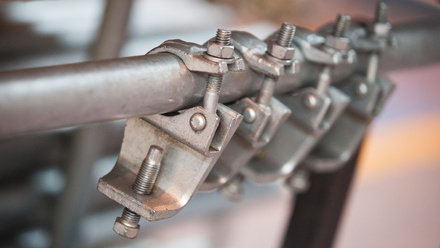Clampdown on CIS Fraud ‘to save £300m lost to fraud’
The construction industry is bracing for a shakeup as the government tackles widespread fraud within the Construction Industry Scheme (CIS). Effective April 2024, stricter rules aim to close a £300 million loophole exploited by organised crime gangs.
At the heart of the issue lies "gross payment status" under CIS, allowing subcontractors to bypass tax deductions at source. While this speeds up cash flow for legitimate businesses, it has also become a playground for criminal activity. Gangs submit fake invoices and funnel money through complex subcontractor chains, stealing millions in unpaid VAT and CIS deductions.
To combat this, the government is making VAT compliance mandatory for obtaining or retaining gross payment status. This means subcontractors must prove they follow VAT regulations, making it significantly harder for fraudsters to operate undetected.
Reactions to the move are mixed. The Federation of Master Builders welcomes the crackdown on fraud, but some contractors worry about increased paperwork and potential delays. However, the government insists curbing criminal activity is crucial to protecting legitimate businesses and ensuring a level playing field, as Exchequer secretary Gareth Davies stated: "This measure is predicted to raise around £300m over the next five years."
Tracey Wright, head of tax at law firm Osborne Clarke, told Construction News: “When CIS was introduced, the Inland Revenue (IR) and Customs & Excise (C&E) were separate entities, so the compliance test was on the tax dealt with by IR and not VAT, which was under C&E.
“Clearly we have had HMRC, the merged entity, for many years now and this is a change to bring VAT into the compliance test. It also brings in the right to remove gross payment status if there are VAT-compliance failures or fraud.”
She said those seeking to defraud the system might be caught more easily if they have to show they are compliant with VAT rules.
CIS has faced previous scrutiny. Introduced in the 1970s to curb tax evasion, it has been criticised by unions who see it as a tool for employers to avoid National Insurance contributions. Nevertheless, the government maintains CIS remains a valuable tax collection tool in construction, and the latest changes are crucial to plugging a major loophole.
The full impact of the new rules remains to be seen, but one thing is clear: the days of easy pickings for CIS fraudsters are numbered. With increased scrutiny and stricter compliance requirements, the construction industry is on track to become a less hospitable environment for criminal activity.





